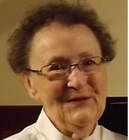
For the last several years I dedicate my presence at protests to commemorate Rufina Amaya, a Salvadoran woman, the sole survivor of the massacre at El Mozote perpetrated by graduates of the School of Americas. Away from her village that day she returned to the horror of watching her husband, four children, parents and sibling die in gunfire aimed at the school which the villagers were forced to enter. As a final act the structure was set afire.
In 1996 I read of a documentary film School of Assassins by the Maryknoll Missionaries. Fascinated by the title and the fact that it was nominated for an award I sent for it. The day it arrived I watched it once “My government wouldn’t do that” twice, “Oh, No” and after the third time I called the number at the end and so begins my story....
For many years the United States has maintained a training school for the Latin American military at Ft. Benning. This infamous institution has trained hundreds of Central and South American military conscripts in various types of “warfare” and acts of terrorism. Many of these graduates become the worst human rights abusers in the Western Hemisphere.
At the age of 65, in 1996 I ‘crossed the line’ carrying a makeshift cross bearing the name of Jean Donovan, one of the victims of this violence perpetrated by graduates of this institution. I and 60 others were arrested, and cited with a five year Do Not Return document that is also known as a Bar and Ban.
In the interim I traveled with Witness for Peace and a group called EPIC A to confirm for myself the horrors I had witnessed in the School of Assassins Film. The truths were evident in the sharing by witnesses of these atrocities, and by the work of the UN Truth Commission in El Salvador and Guatemala. They named those guilty of these crimes and the attendance records of the School confirmed their enrollment and the courses studied
How could I not then, ignore the Bar and Ban and once more cross that line! Now the charge or ignoring the Bar and Ban under the U.S. Military Code became criminal trespass subject to six months in prison and a fine of $3000.
Yes, prison, more difficult than I expected, proved to be an eye opener about the injustice of our justice system. The women’s prison of some 500, mostly minorities, under educated, and subjects of poor economic situations, were all sentenced for non violent crimes, mostly drug related though they were not dealers. And to further traumatize these prisoners they nearly all had children under 18. The social implications here cannot be justified considering the harm that happens as a result.
As an advocate for human rights, with a special interest in prison conditions, the Spirit Sophia , not done with me yet, next introduced the plight of asylum seekers. While attending the protests at Ft Benning. , a side trip to a private prison in Lumpkin, Ga, an impoverished rural town, again led to an arrest. This private prison housed over 1700 men under questionable physical and mental conditions. Dressed as the statue of Liberty and holding my torch high the good sheriff handcuffed me in the front as I reminded him of his mother! This gave me he opportunity to hold my cuffed hands out the rear window, torch in hand, on the way to police headquarters..
The Spirit leads where it will. My personal encounters with civil disobedience are accompanied by and with like minded individuals. We commit to these actions from our different responses to beliefs, cultures, knowledge and experiences. Often our first responsibilities are to family, children, and financial concerns. Only then are we free to consider the possibility of prison, of fines, of the loss of civil rights.
Somehow, in faith we trust that all is evolving as it should to what Teilhard de Chardin called the Omega Point. And we ask “Oh Holy One, is it I?” as we await the response knowing He goes before us always.
May the restlessness of Christ continue to inspire us all.
Rita Lucey is a member of FCM in the Southern Region. She is a wife, mother, grandmother, great grandmother and a Roman Catholic Priest. https://arcwp.org/en/biographies/#L
For information about the School of America Watch…
https://youtu.be/CzeJ4UEdAuE
SOAW video by FCM Member, Jack Wentland. Jack is a member of the Northeast Region.
https://www.facebook.com/jackwent2/videos/10217301289060804/
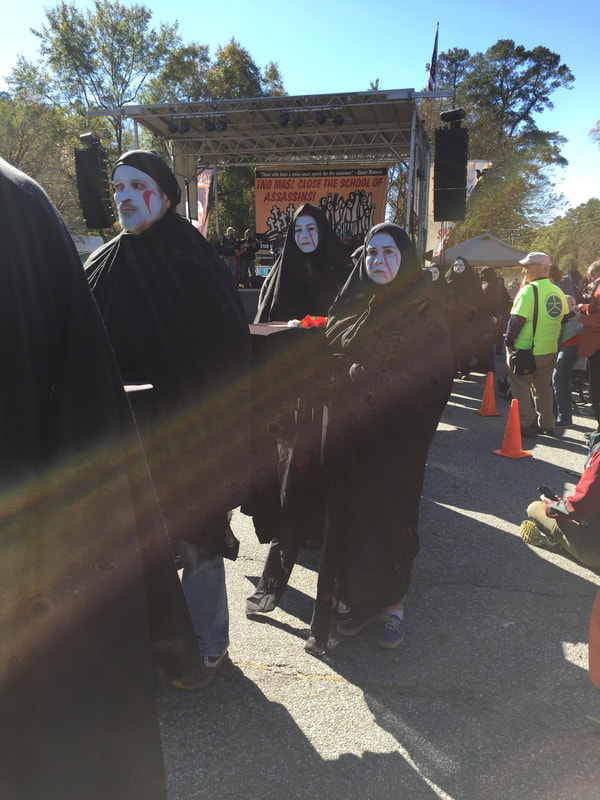
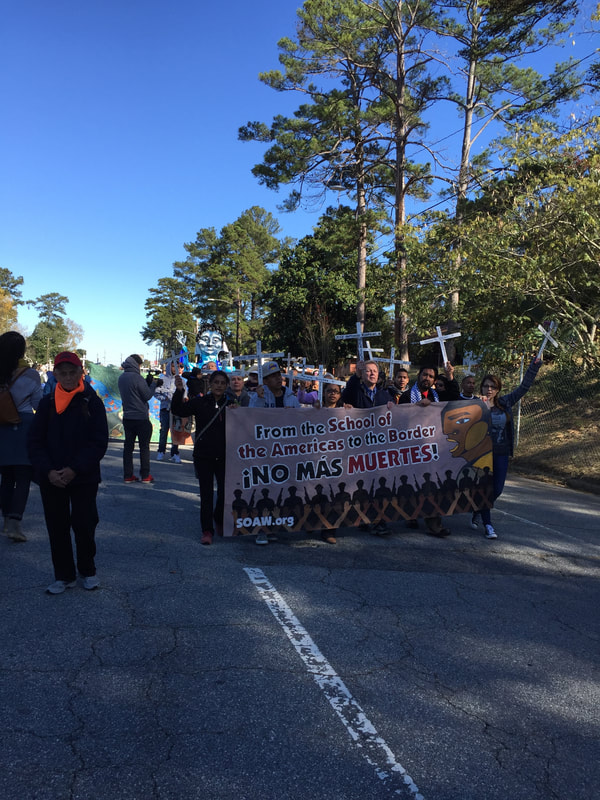
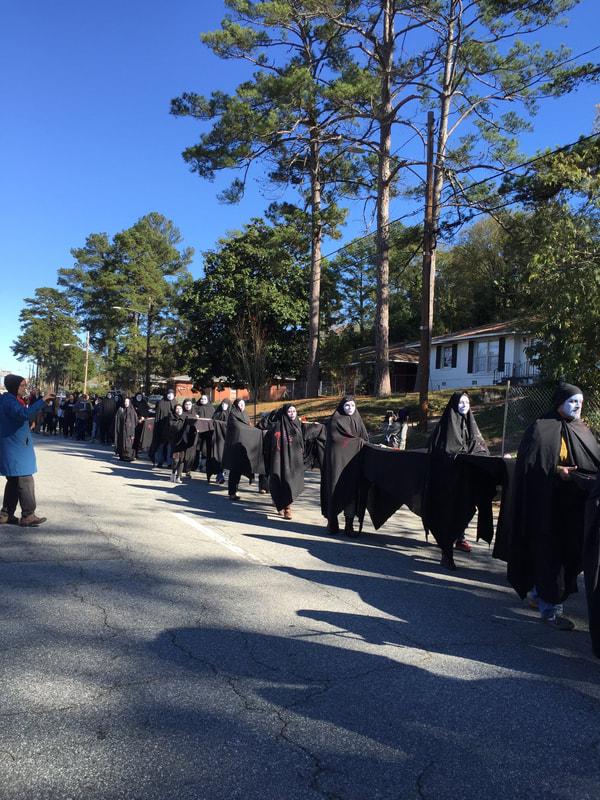
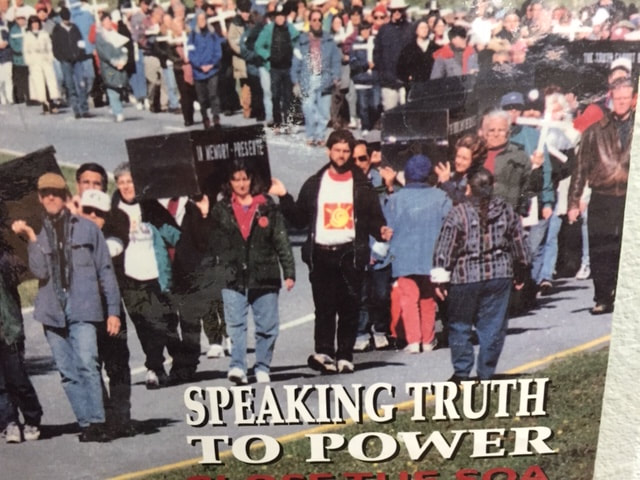
0 Comments
Trauma from a Chaplain's Perspective by FCM Member, Lindsay Butler Staff Chaplain at VA Medical Center in Memphis, TN
10/19/2018
0 Comments
The definition of trauma can be different for everyone. Trauma is typically a threat to our survival; an experience that affects the body, brain, and soul in ways that are negative and unexpected. Trauma leaves an imprint on those it affects, changing their lives forever; causing them to feel overwhelmed, confused, powerless, and angry.
I encounter many different variations of trauma in patients who are veterans. In my own personal experience, I can say it sometimes can feel so heavy that no words can express it. The pain that comes with it can feel everlasting.
Chaplains tend to struggle with secondary trauma, involving the emotional residue of exposure experienced in working with people as we hear their trauma stories. Chaplains become witnesses to the pain, fear, and terror that trauma survivors have endured. How we manage it can affect the quality of the patient care we provide and the self-care we must intentionally practice to thrive in such a challenging, yet meaningful vocation.
Personal wholeness can lead others in trauma to wholeness
As a chaplain, I must be aware of what’s happening when a patient discloses their trauma story. I cannot address the trauma alone, but need the whole of the medical team to address the trauma that’s intertwined within the whole body of the patient. Chaplains provide spiritual care alongside many different disciplines, such as psychology, neurology, social work, and other medical specialties. As one of my C.P.E. supervisors told me, “Butler, you are not Jesus.”
In other words, I cannot do all the work, let alone deliver good quality work to a veteran without the help of other disciplines. Each of us from each discipline have something to offer each other as well as something to offer the veteran. Each of us sees through a different lens, a different clinical paradigm. In order to take care of my whole body I remind myself constantly to be intentional by staying in my lane and calling on others for help when it feels like it is time to “switch lanes.” I also have to intentionally practice my own personal self-care as well: exercising, eating healthy, spiritual community, time in nature, getting good sleep, seeing a therapist, etc. By practicing our own self-care it enables us to give the best care to our patients rather than just good care.
Spirituality is shaken during trauma
Clinically speaking, care providers must settle down the body before looking at the mind. The brain stores trauma in unique ways. If we push, dismiss, or are flippant in our responses, we can actually further the trauma.
Trauma shakes the spirituality of the patient and provider to their very core.
It’s important to note when someone is physically activated when sharing their trauma. By letting the bodies grieve as much as the brain and spirit need to- chaplains embrace the other by simply being present, and knowing when to seek further professional help.
Trauma causes a spiritual awakening and/or a spiritual deconstruction because it leads to asking questions such as: How can I exist in the world now? Where is God? How do I find community, value, purpose, meaning, my identity, and how can I feel safe in the world again?
Many who have experienced trauma have to learn how to embrace a grief that feels endless. They desperately need us to create a safe place for them to share and receive support. We must be patient. Many of us began life with what we would describe as systems of trusted support: family, community, state, God, and church. Combat veterans go to war literally experiencing hell on earth and return home to a place where they feel they no longer fit in or can be understood.
The trauma they experience hurts so much it results in existential shame about who they are and who God is in their life. For them to talk about it again is traumatic in and of itself – to feel the pain again and admit how much it hurts.
We, as a spiritual community, the church at large, and care providers serving in our various roles of ministry can create safe places for our veterans and for civilians to just be human beings returning to wholeness.
Unless we have experienced the trauma, we cannot know the depth of where they are and where they are going, but we, as chaplains, can create safe spaces for them to be who they are and truly say how they feel.
We all are seeking meaning-making; seeking a purpose, value, personhood, and acceptance. We all experience doubts and have hard questions to confront time to time regarding our spirituality. We can help those affected by trauma return to wholeness by creating safe spaces for people to be seen and heard. Rev. Barbra Brown Taylor said it best when she said, “Holiness is simply paying attention.”
For further guidance in addressing trauma and secondary trauma see the following websites:
http://www.theliturgists.com/podcast/2017/5/16/spiritual-trauma https://www.counseling.org/docs/trauma-disaster/fact-sheet-9---vicarious-trauma.pdf
0 Comments
Statement of the Executive Committee of the Federation of Christian Ministries (FCM) regarding the Pennsylvania grand jury findings
8/22/2018
0 Comments
The 900-page grand jury report has left us filled with horror, disgust, and sadness. FCM is not a Roman Catholic community, but our roots of 50 years ago were solidly in the Roman Catholic tradition. The Roman Catholic denomination is still the largest in the United States. The moral catastrophe it is enduring affects all of us who profess the name of Jesus. Believing that FCM also possesses a unique perspective because of our inclusive and ecumenical posture, we suggest several lines of action by which the Roman Catholic church might offer radical corrective measures to help heal its wounded state.
First, we join in the recommendation of others that the entire American cadre of archbishops, bishops and cardinals should tender their resignations to Pope Francis. This would indicate to all an acceptance of accountability and responsibility and a willingness to move ahead in an entirely new way. Pope Francis would then be able to accept the resignations of those with any hint of complicity in the coverups so that a clean slate may be presented to the faithful. This is a radical and common-sense action.
Second, since the Catholic hierarchy is a power structure made up only of men, we recommend the immediate deletion of Canon 1024 from the bylaws of the Catholic Church. This is the devastating rule preventing the ordination of women. Following on that deletion we ask Pope Francis to welcome immediately the members of the Roman Catholic Women Priests and the Association of Roman Catholic Women Priests into full communion and positions of responsibilities in the Catholic Church. It is inconceivable that the coverups and abuses of power that denied justice to victims would have happened if women were in positions of responsibility in the hierarchy. FCM membership includes many women who have taken the prophetic action of ordination and have endured the pain of excommunication in following out their spirit-given ministry. We know these women, and they can be a leaven for the wounded Catholic Church. The Catholic hierarchy must change, and this is a clear change that would tell the world, “Yes, we are doing business in a new way.”
Third, the legacy of discrimination, condemnation, and marginalization of people of the LGBTQI communities must immediately and formally stop. These scurrilous teachings provide a rationale for blaming gay priests and bishops for these ruthless crimes simply because of their sexual orientation. This blame then deflects attention from the corrupt power structure that has enabled the horrors shown in the grand jury documents to continue over decades. The hierarchs in power deflect blame to scapegoats and to the messengers of the truth when they should have offered leadership immediately to cure instead of acting to cover up.
Finally, the requirement of celibacy for those in priesthood must be modified. Clearly a charism, a gift of God, cannot be legislated. Allow those called to a married priesthood to live that out. And allow those who have the charism of celibacy to live out that inner calling. Each year greater burdens are placed on the declining number of priests. The prayers over decades for more priests have been clearly answered in the negative. This must change and the change must be based on deep reformation.
We believe that nothing short of radical transformation will lead to a cure, a new paradigm of ministry by the Catholic Church, that gains acceptance by the people. We support this transformation and look forward to its accomplishment. Nothing less will suffice.
Tom Stricker, Chairperson; Thomas Cusack, President; Heidi Tierney, Treasurer; Kathleen Bean, Secretary
0 Comments
FCM 2018 Honorees at the 50th Anniversary Assembly
7/31/2018
0 Comments
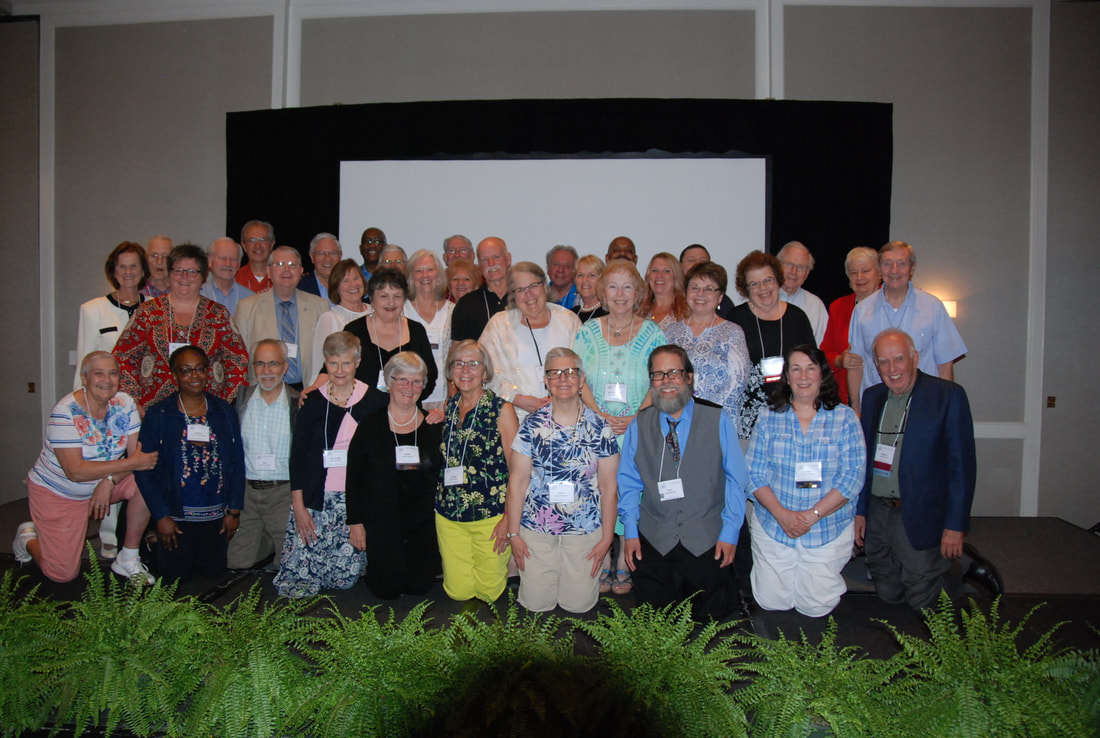

No comments:
Post a Comment
Note: Only a member of this blog may post a comment.